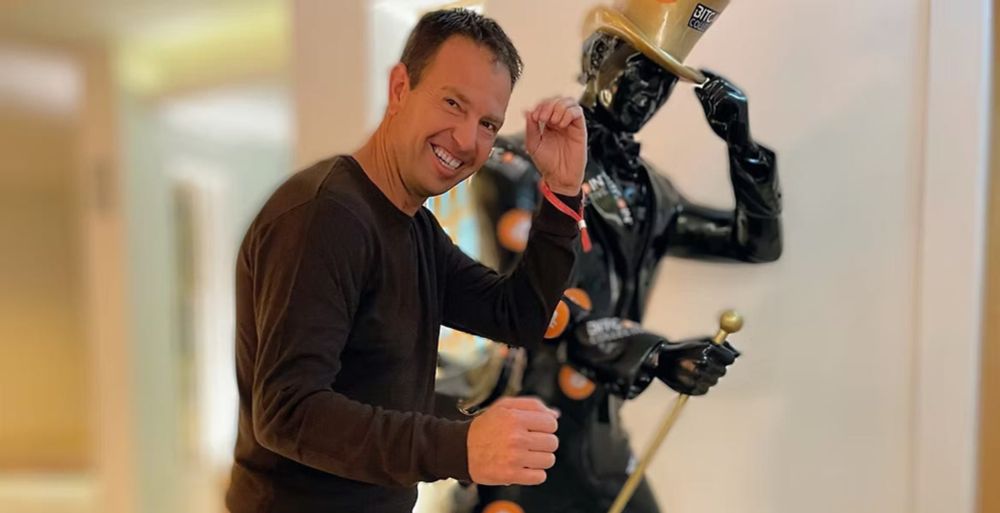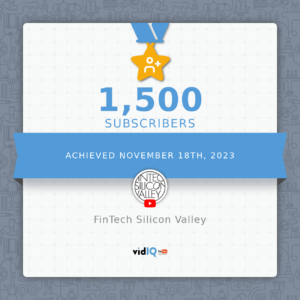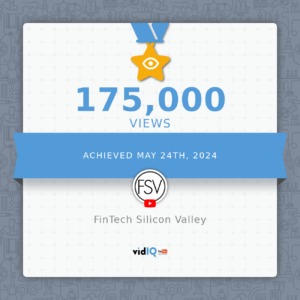
John Lunn is the Founder and CEO of cloud payment orchestration platform Gr4vy. He is a technology and fintech entrepreneur with 21 years of experience working and investing in financial services, commerce enablement, e-payments, data, security and infrastructure. Lunn worked as the Director of Technology for six years at CyberSource, the world’s first payment service provider, which was sold to Visa for $2Bn in 2010. He then helped found Passmark Security which was sold to RSA Security in 2006. In 2006, Lunn joined PayPal as the fourth employee in the UK (now 2,000+), where as Global Director of Developer and Startup Relations, he built and grew PayPal’s first Developer Relations team. In 2015, he was instrumental to the purchase of Braintree by PayPal and joined the team. In 2016, Lunn was part of the team that launched PayPal Ventures, the venture capital arm of PayPal, a $350m fund with backing from the Board. Lunn was a Board Observer for Dosh, Arkose, Raise, Acorns, Toss and many others.
John Lunn is the Founder and CEO of cloud payment orchestration platform Gr4vy. He is a technology and fintech entrepreneur with 21 years of experience working and investing in financial services, commerce enablement, e-payments, data, security and infrastructure. Lunn worked as the Director of Technology for six years at CyberSource, the world’s first payment service provider, which was sold to Visa for $2Bn in 2010. He then helped found Passmark Security which was sold to RSA Security in 2006. In 2006, Lunn joined PayPal as the fourth employee in the UK (now 2,000+), where as Global Director of Developer and Startup Relations, he built and grew PayPal’s first Developer Relations team. In 2015, he was instrumental to the purchase of Braintree by PayPal and joined the team. In 2016, Lunn was part of the team that launched PayPal Ventures, the venture capital arm of PayPal, a $350m fund with backing from the Board. Lunn was a Board Observer for Dosh, Arkose, Raise, Acorns, Toss and many others.

Transcription
Pemo: Welcome, John. It’s so good to connect again. I know we met many years ago when you were at PayPal Ventures, so let me know about the new startup. It sounds really interesting.
John Lunn: Sure! Gr4vy is what’s now known as payment orchestration, and essentially it was born out of the frustration of having the same conversation over and over again with people selling things online. That conversation was “you should add some cool functionality like PayPal, or something provided by Plaid,” and hearing back, “yes, absolutely. We would love to do that. But it’s going to take two years, or it’s going to take eight months.” And, you know, it was just getting frustrating because there’s all this good stuff coming, which is great for helping the underserved, helping all kinds of areas, and accelerating payments that was essentially being stalled by this ‘thing.’ So I dug into what is the ‘thing?’ Why is this going so slowly? And it turns out that pretty much every retailer in the world has a payments team. It starts as one person doing a connection to one PSP (payment service provider) – so a Stripe or a Braintree – and then six months later they add PayPal. Six months later, they go and add Buy Now Pay Later. Then they go international and essentially end up building a custom in-house solution to deal with all of their different payment processors and suppliers. And the bigger you get, what traditionally people have been doing is adding more people to it. So you end up with these huge payment teams working on what is essentially custom code in order to manage your payments that becomes limiting the bigger you get. And the crazy thing is everyone is doing it, and they’re all doing it independently, and essentially they’re building exactly the same thing. So I looked at this and said, ‘let’s just build that one thing. Let’s just build that one product that allows a retailer to manage all of their different payment suppliers and how their payments route to them without needing an army of engineers to do that.”
Pemo: Good thinking. You’ve got the solution, then. Basically, talk a little bit more about that solution and how it’s being taken up by other companies.
John Lunn: Yeah, so when we were thinking about how to build this, we actually did a fair amount of talking to large retailers and people around the world on “what should it, what could it look like?’ And what we heard, again, is one of the biggest questions. “Should we build this as a SAAS? Should we build a system you connect to, and we just deal with it for you?” And really, the larger the retailer, the more we heard, “no, we’re not going to rip and replace our entire payments infrastructure overnight, and especially replace by an early stage seed-funded startup. We need something that we can migrate over to over time or build into what we have today to enhance it or grow it. And so please come back with something that is a bit less painful than a rip and replace.” So we built Gr4vy as somewhere between an IAAS and PAAS company. Essentially we spin up a Cloud. We spin up an Instance of Gr4vy for each of our retailers in a sole-tenancy fashion. Everything has an API. Everything will work with what they’ve got today, and it allows them to basically have this tool and control it and run it as if it was their own.
Pemo: And they don’t have to have all those programmers to handle payments.
John Lunn: Exactly.
Pemo: That’s fantastic. So it must be a massive cost saving for retailers. Is that correct? Are people giving you that feedback?
John Lunn: Well, there is a cost saving. Obviously, hiring payment engineers is hard. They’re quite rare. There’s not a lot of them out there, especially hiring payment engineers with Cloud experience is even harder. So there is that side. But I think the massive saving that comes to retailers is the increase in speed that they have. I mean, COVID has come along and changed everything. You know before COVID, as a retailer, probably 15% percent of your stuff was coming through ecommerce. Then along comes COVID, and suddenly it’s 100% percent. Those little speed bumps that you had in the road are now great big mountains, and everything that’s wrong with your payment system is a problem. So us plugging in there, just speeds up, enhances, allows you to move quicker, allows you to add the cool new functionality your customers are asking for, and go international even faster.
Pemo: And so is it mainly big retailers that are in your market?
John Lunn: Yeah, so we work with midsize and above. Kind of my view on this is, look, if you’re a small retailer selling in North America to North Americans, you don’t need orchestration right now. You’re fine with one of the PSPs in that space.
Pemo: Yep.
John Lunn: I think when you get a bit bigger, and you start going international, or you start getting to a point where having more than one PSP plugged into you makes sense – which is once you get above 1,000 to 5,000 transactions a month – at that point, orchestration gets a lot more important and something you should put in sooner than later.
Pemo: Well, I have to just give you a little personal feedback, not about your product, but when the virus lockdown happened in Palo Alto, of course, my event business went immediately. I started looking at setting up payment systems for some online training. And, oh my gosh, even though I use WordPress and have been doing that for many years, it totally stretched my capacity. I’m not a developer, but I do love working with code. I have to say there were days when I just had to put it away because my brain wouldn’t work properly. So I give great credit to you guys that you’re actually building a service like that because, gee, if I could have turned around and said to someone, “just put it in for me, make it easy” – oh gosh, I was so desperate at times. It is really challenging, particularly if you’ve got different payment systems that you want to include, so good work you. You talked about the crisis. How has that been building your startup while the crisis was happening and the lockdowns?
John Lunn: So it’s kind of fascinating. I think, you know, until the Summer I hadn’t met half of my team, ever, face-to-face. So we built the entire company during COVID from scratch.
Pemo: Wow.
John Lunn: The virus, for me, gave me a big chance to think about stuff. I had a lot more personal time, as it were, to actually sit down and think about how to do things right. So that’s one thing that came from it. But I think, for us, I’ve never been a big fan of commuting. And it kind of accelerated my thinking about how to build a company. We just said, look, from day one, we’re going to be a remote-first company. So we have a view that you should be able to work from where you want to work, at the times of day you need to work, and we will get the best out of you if you’re happy and living your best life. That’s working great for us. We have people all over North America and all over Europe. We have people in Argentina. We have people in other parts of the world, and it doesn’t really matter because everything we built around the company – I hate to use the word culture – but the way that we operate as a company, the tools we built, are all around assuming people aren’t going to be in the same office. We’re attracting amazing talent from big companies. Frankly, people who just don’t want to go back to an office anymore. They like working from where they decided to work during COVID, and we give them the freedom to do that.
Pemo: So much has changed with a great resignation, and, you know, remote work and life will never be the same again. The wonderful thing, like you’re saying, is that incredible integration globally instead of feeling like you’re in a little bubble in Silicon Valley. It’s now really the world, and people have even been leaving the bay area because they can work anywhere now. So it’s remarkable the positive side of what was sort of a huge tragedy initially.
John Lunn: Yeah, and I think it’s helping to redistribute some of the intelligence of the country from all being squeezed into one place. Now people like where they come from, and I think that’s only good for the future.
Pemo: Yeah, definitely. There’s talent everywhere. It’s not just in Silicon Valley. Obviously you’ve had lots of time to think and work on your startup. What do you think is coming now in the future? Obviously, now countries are saying that they’re going to have to learn to live with COVID, and obviously all the changes that have happened around it and because of the crisis. What’s your sense about – obviously, your focus is on payments and the digital world – but what’s your prediction about how things are going to go?
John Lunn: Well, I think it’s already going six times faster than everyone predicted because of this crisis. I think there’s a huge movement to digitalization, which is going across all parts of Internet – we should call it – but, specifically in commerce, I think that if you’re moving everything to the Cloud, then you need something that works in the Cloud like Gr4vy. But I think that’s going to continue at this accelerated pace. I think what else is happening, which is fascinating, is the amount of payment types. Once again, this year looks like the usage of credit cards and debit cards are going down, and there’s an increase in other payment types like wallets. We’ve seen the emergence of open banking finally in Europe. We’re starting to see grumblings of that over here in the U.S. We’ve got these interesting other ways of paying coming from all parts of the world – particularly Asia. And I think it just suddenly got a lot more complicated to be a retailer. I think you said it earlier when you were working on WordPress, but, you know, all these,what were domestic retailers are all becoming international because they have to. And by becoming international, you have to cater to an international audience, or for your local audience, and that means you’re going to be supporting a lot more payment types because that’s how those people like to pay.
Pemo: Yeah
John Lunn: So I think life just is getting more complicated for a retailer because consumers are getting more demanding on how they like to shop.
Pemo: And so more demand for Gr4vy, right?
John Lunn: That’s the plan, yeah.
Pemo: That’s fabulous. Well, I’m so glad that this is a success that’s come out of the crisis. And hopefully a continuing success from the looks of things. I wish you all the best and hope the company continues to grow and establish itself internationally.
John Lunn: Thank you very much.
Pemo: And hopefully, we’ll have you on the show somewhere down the line to get an update report.
John Lunn: Of course, I would love to. Thank you.
Pemo: Great. Thanks, John.

















